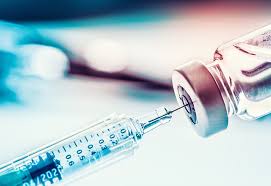According to the world health body, the Pfizer-BioNTech COVID-19 mRNA vaccine is safe and effective. Nevertheless, there are specific populations for whom vaccination is not recommended, either due to contraindications, lack of supply, or limited data.
WHO said these populations currently include people with a history of severe allergies, most pregnant women, international travellers who are not part of a prioritized group, and children under 16 years.
It, however, said that the priority is to start vaccinating health workers at high risk of exposure, followed by older adults, before immunizing the rest of the population.
“People with a history of a severe allergic reaction to any component of the vaccine should not take it.
“Pregnant women are at higher risk of severe COVID-19 than non-pregnant women, and COVID-19 has been associated with an increased risk of pre-term birth.
“However due to insufficient data, WHO does not recommend the vaccination of pregnant women at this time.
“In case a pregnant woman has an unavoidable risk high of exposure (e.g. a health worker), vaccination may be considered in discussion with their healthcare provider.
“It is recommended to avoid pregnancy for 2 to 3 months post-vaccination.
“If a breastfeeding woman is a part of a group (e.g. health workers) recommended for vaccination, vaccination can be offered. WHO does not recommend discontinuing breastfeeding after vaccination,” it said.
The UN body added that the vaccine has only been tested in children above 16 years of age. Therefore, at this time, it does not recommend vaccination of children below 16 years of age, even if they belong to a high-risk group.
WHO noted that the vaccine is safe and effective in people with various conditions that are associated with increased risk of severe disease.
This includes hypertension, diabetes, asthma, pulmonary, liver or kidney disease, as well as chronic infections that are stable and controlled.
“Further studies are required for the impacts on immune-compromised persons. The interim recommendation is that immune-compromised persons who are part of a group recommended for vaccination may be vaccinated, though when possible, not before receiving information and counselling.
“Persons living with HIV are at higher risk of severe COVID-19 disease. Limited safety data exists on HIV-infected persons with a well-controlled disease from the clinical trials. Known HIV-positive vaccine recipients should be informed, and when possible, counselled in relation to the available data,” it said.
WHO said vaccination can be offered to people who have had COVID-19 in the past.
“But given the limited vaccine supply, individuals may wish to defer their COVID-19 vaccination for up to 6 months from the time of SARS-CoV-2 infection. As more data becomes available on the duration of immunity after infection, this period may be adjusted.
“Testing for prior infection is not recommended for vaccine decision-making.
“At present, WHO does not support the introduction of requirements for proof of vaccination against COVID-19 for international travellers as a condition for exiting or entering a country or for travelling internationally,” it said.
On the dosage of the vaccine, the UN body said a protective effect starts to develop 12 days after the first dose, but full protection requires two doses which “WHO recommends be administered with a 21 to 28-day interval. Additional research is needed to understand longer-term potential protection after a single dose.”
source: Punch

 The World Health Organisation on Friday says people with a history of a severe allergic reaction to any component of the COVID-19 vaccine and most pregnant women should not to take the Pfizer-BioNTech COVID-19 vaccine.
The World Health Organisation on Friday says people with a history of a severe allergic reaction to any component of the COVID-19 vaccine and most pregnant women should not to take the Pfizer-BioNTech COVID-19 vaccine.




